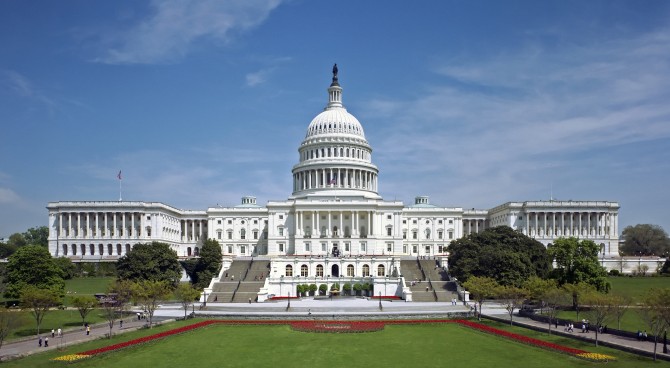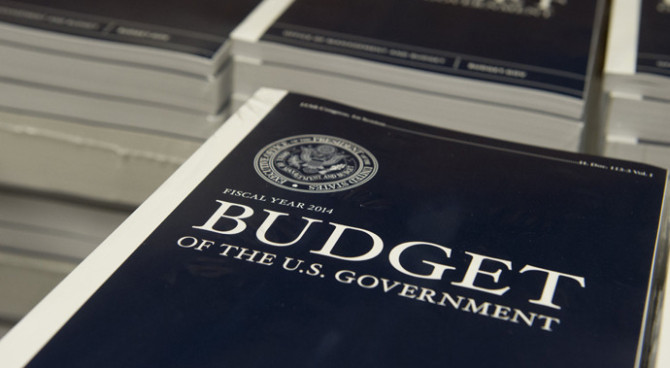The best way to avert a crisis is to reform entitlement spending. The next best way is growth.
Jan. 11, 2024 6:21 pm ET
As Congress begins a new session, the price of government expansion during the pandemic is coming into sharper focus. The national debt as a percentage of gross domestic product will soon surpass records set in World War II, and bipartisan support is rising in both the House and Senate for another fiscal commission to tackle the debt problem. We should greet this news with high hopes but low expectations; the last two commissions convened for this purpose failed.
The failures of the Simpson-Bowles commission of 2010 and the Joint Select Committee on Deficit Reduction of 2011 (known as the Super Committee) demonstrate that no debt commission can succeed without reforming entitlement spending. Medicare, Medicaid, Social Security and other mandatory programs stood at a combined 10.2% of gross domestic product in 2000. That more than doubled, to 23.1%, during the pandemic. These entitlements already constitute almost 60% of the federal budget and are projected to grow faster than wages, prices and the economy over the next decade. Only interest on the national debt is growing faster than entitlement spending.
A new commission can’t avert a debt crisis without slowing the rate of entitlement growth. Neither Simpson-Bowles nor the Super Committee was able to do so. President Obama created Simpson-Bowles shortly after the passage of ObamaCare, so healthcare entitlement spending was essentially off the table. In the Super Committee, Republicans offered to trade a negotiated tax hike for Paul Ryan’s Medicare Premium Support plan. Democrats rejected the deal and never offered a viable alternative. Fast-forwarding to the present, Donald Trump has regrettably now joined President Biden in railing against entitlement reform.
This isn’t a great environment for a new fiscal commission, which would likely face a picked-over landscape of repetitive and increasingly nebulous cuts to the roughly 16% of the federal budget containing domestic discretionary spending. Republicans will already have a hard time hanging on to the savings they negotiated as part of last year’s debt-ceiling deal. Any further discretionary cuts would probably hit defense or require tax hikes that could stifle economic growth.
Many consider tax hikes part of a “balanced approach†to deficit reduction. While that may sound reasonable, another lesson of previous fiscal deals is that tax increases historically hurt the economy and don’t reduce the deficit. Negotiators at the “balanced†1990 Budget Summit agreed on a five-year tax hike, which the Congressional Budget Office projected would yield $159 billion of new revenue. Yet the CBO also projected $206 billion in revenue losses from revised slower growth—for a net loss $47 billion. Similarly, President Clinton projected $114.8 billion of new revenue over five years from his 1993 tax hike‘s retroactive levies on the rich. Yet two CBO revisions in 1994 cut revenue for those same five years by $103 billion, or almost 90% of the projected tax hike.
Revenue losses from tax increases have grown worse over time. To pay for ObamaCare, Democrats passed tax hikes of $813 billion in 2010 and $620 billion in 2013. These increases were so economically harmful that the CBO slashed 10-year GDP estimates by more than $14.1 trillion after 2011, with the federal share costing $3.8 trillion in lost revenues. The hard truth is that President Obama may have raised taxes by $1.4 trillion, but he lost more than 2.5 times that from slower growth.
By contrast, Republicans promised to balance the budget by cutting both spending and taxes after winning control of Congress in 1994. President Clinton vetoed the GOP plan in 1995, but he then signed welfare reform in 1996 and both the Balanced Budget Act and a tax cut in 1997. The result? The deficit disappeared and the federal fisc enjoyed four years of surpluses and average real GDP growth of 4.4%. By July 2000, the CBO claimed, “the deficits that forecasters once anticipated for fiscal years 1998 and 1999 disappeared in a surge of revenues that created surpluses instead,†due “primarily to the strong performance of the economy.â€
More recently, the 2017 tax cut—along with other pro-growth policies such as deregulation—generated a $1.088 trillion surge in nominal revenue. All revenue gains due to economic growth from mid-2017 until the pandemic totaled $1.405 trillion—a 96% offset of the tax cut’s cost when passed.
If Congress decides to go forward with a new fiscal commission, lawmakers must be honest with the American people. We can’t get out of the national debt danger zone without reforming Medicare, Medicaid and Social Security. No one should fool himself into believing that a combination of tax hikes and minor discretionary spending reductions will be enough. If entitlement reform is off the table, focusing a commission on raising revenues through proven pro-growth policies and tax reform is clearly the next best thing.
Mr. Hensarling served as chairman of the House Financial Services Committee, 2013-19. He was a Republican member of the Simpson-Bowles commission and was co-chair of the Joint Select Committee on Deficit Reduction. He is an economics fellow at the Cato Institute and an advisory council member at Americans for Prosperity. Mr. Solon is an adviser to US Policy Metrics.



